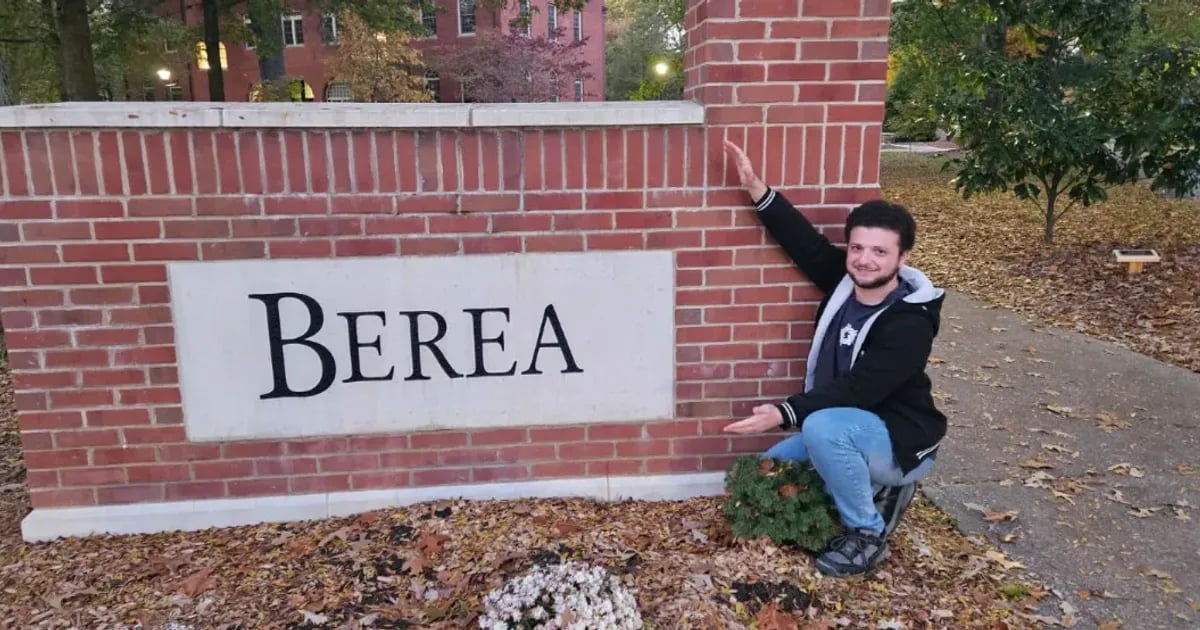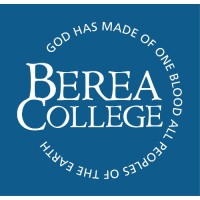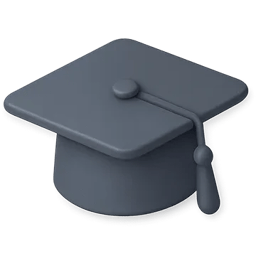Introduction
My name is Besher, and I am from Aleppo, Syria. I am currently a sophomore at Berea College, a small college in a small town in Kentucky. I'm studying Computer Science and Economics. I came here wanting to study Computer Science, but then I changed my mind and decided to double major. My non-academic interests include dancing, which I learned here, video games, cycling and swimming.,

Decision to study abroad
One major thing that helped shape this was learning English when I was in high school. I went to a regular public high school in Syria. I started to learn English as a language to speak and communicate beyond the classroom, and I liked it, so the learning process went smoothly. People around me started to consider applying and studying abroad, since English skills enable communication with almost half the world. I started asking and researching different scholarships and organizations until I found the Syrian Youth Empowerment Initiative (SYE). SYE is an initiative that mentors a selected number of High School Syrian Students through the process of applying abroad. I first got waitlisted when I applied, and then got off the waitlist to navigate the process that led to Berea.
Gap Years
I had two gap years. I finished high school in 2023 and then joined SYE, which meant I had one gap year by default to build my profile and prepare my applications before submitting them. This was especially important since the US application process is very different from the system we're used to in Syria. I applied in my first year with SYE but didn't get in anywhere, so I applied again the following year on my own.
Honestly, the SYE experience on its own changed my perspective on many things. I learned a lot not just from working with professionals from the United States, but also from meeting people from different communities across the country. Because of the war, I had never left my city of Aleppo until 2023, when I went to Damascus to take the SAT. There, I met an amazing cohort of SYE students. I got to know people from different cities and learn about their experiences. I learned a lot from their perspectives on life, the colleges they were applying to, their plans, and everything in between.
In these years, I also got involved in many organizations besides SYE. I got to be a Python teacher in Paper Airplanes’ Women in Tech Program. I also spent a lot of time trying to learn different skills from Coursera. And I was trying to learn Spanish. In general, it was a mixture of extracurricular activities, volunteering, learning about new communities, and working on my application.
Application Resources
In my first year, I relied mostly on the database that SYE had for colleges. I used College Essay Guy, which was also included in SYE's resources, and attended the info sessions they organized with various universities. However, I didn't explore many resources outside of SYE. For my second year, I relied heavily on the resources that Berea College itself offered. I only applied to two colleges that year, but I was really focused on Berea. I probably spent two or three months finalizing my essay because Berea requires a unique essay—they don't use the Common App. I spent a lot of time reading their website to understand what kind of student they were looking for, to make sure it was a good match for me, and to highlight that alignment in my essay. The admissions office also had YouTube videos with tips on personal statements, including the kinds of questions they ask and what they want to see.
Berea Application vs. CommonApp
Berea asks for the same things as the Common App: extracurricular activities, a statement of interest, questions about your academic background, transcripts, and so on, but they do it very differently. First of all, they don't use the Common App system. They have their own website, which is different but really convenient. They ask for a financial recommendation, which is unusual for most universities. This is a recommendation signed by an employer, religious leader, or anyone who is aware of your financial situation. They also ask for one big essay—and I really mean one BIG essay. They say it should be between two and five pages, so there's a very wide range. I tried to make mine as long as possible, not just by adding words but by adding meaningful content. I tried to distill my entire life experience into those five pages. The essay comes out to around 1,200 words, double-spaced, if you write the full five pages. They have very specific questions for international applicants, such as: "What are your plans after graduation?" and "Do you plan to return to your country after you graduate?"
Berea College doesn't offer interviews. However, they do offer information sessions on Wednesdays where they discuss the college and the application process. Attending these sessions is actually a plus—if you attend and they see you're taking the college seriously, it demonstrates genuine interest and can work in your favor.
Obstacles I faced during the process
Before getting accepted, one obstacle was managing time. It's a very common challenge, and a valid one. After getting accepted, however, the visa process was a truly huge obstacle. Since the US embassy isn't active in Syria, we have to apply for a visa from a different country. This meant finding an appointment on time, securing a hotel in Jordan, and ensuring documents arrived on time, which was complicated because they couldn't be shipped to Syria. I had to have them sent to my friend in the UAE, then find someone traveling from the UAE to Jordan who could hand-deliver them to me personally. It was a lot.
Academics and Life at Berea
Here at Berea, things are really busy. We even have a term for it: Berea Busy. Every time someone has a lot of work, everyone says, "Ah, yeah, it's Berea Busy." It's a small liberal arts college, which means professors usually require mandatory attendance, unlike at larger universities. They assign a lot of homework that needs to be completed on time for grading. On top of that, Berea has a third aspect of life beyond academic and non-academic pursuits: labor. Berea College is a work college, which means every student is required to work a minimum of 10 hours per week, usually on campus. This is what makes tuition free. Between working, attending classes, and keeping up with coursework, it's a heavy workload, especially for international students, who often have additional financial concerns and need to work more hours while also spending significant time applying for internships and similar opportunities.
Social life at Berea
Besides the fact that drama spreads really quickly on campus, social life is pretty good. Making friends is relatively easy, and a lot of people here are friendly and nice. Personally, most of my friends are international students. I think this is because at the beginning of freshman year, international students arrived a week earlier. We had a special orientation, so we were the same small group attending the same events for a whole week, which helped us get to know each other very well. I have a lot of domestic friends as well, of course. I always try to make more friends, and I don't think that's a challenging part, especially since we do everything together. We live in the same dorms and go to the same dining hall. The dining hall is where you meet most of your friends, in addition to working together and taking the same classes on a small campus.
Plans for after graduation
It's uncertain for me what I'm going to do after graduation. I want to pursue a career in software development and try to gain some experience through the OPT program. I'm going to try to apply for the H-1B visa even though I know it's a lengthy and uncertain process.
Things I wished I knew before…
..applying, is to apply for something that I love. I wish I had known that actually applying for something that fits is really important. It is not just that you feel the fit, but it also makes the application process easier. You know what to write, you know that you're a match.
..getting accepted, is how busy it is here. I would have prepared myself mentally. Also, learning how to apply for work on campus, change classes, request funding, and similar things. I wish there were more guidance on how to do things on campus in general. I feel that I missed a lot of opportunities in my freshman year just because I didn't know what to do, or because I was lost. I feel like I'm not missing these opportunities in my sophomore year, just because I got more time to discover and explore the resources that I have.
Academic journey in one word
Discovery. The more I spend time here, the broader the range of discovery gets. Not only academically, but also professional development, how to write a resume, things to do, hobbies, everything. I keep discovering and learning about people and understanding life every day.
Berea in one word
Berea Busy. Sometimes, however, I like to add another one. It’s called Berea Broke. It is something that shows how broke we are, as students. Most students here come from financial hardships, and we are all required to work, and what we earn is considered the very minimum.
The biggest motivation that kept me going
After getting accepted and starting the visa process, one big motivation was that I was nearly there. This was the final step. It felt like, "It's too late to give up. You've already achieved a lot. You've already been accepted."
Before getting accepted, however, the motivation was honestly less strong. Nonetheless, seeing other people get accepted and move forward pushed me a lot. I had imposter syndrome, but I thought to myself often, "I am really not that much worse than the people who are doing it. I can get accepted somewhere." Imposter syndrome can be harmful, but I still believed that I had very good chances of being accepted. Just being in the process and finishing some difficult steps makes you feel like you want to continue because you've already achieved a lot, it's not worth going back, and the reward is great: the opportunity to study abroad, build experience, and find countless opportunities.
Most useful academic skill as a Berea Student
Research is a major focus. During our freshman year, we have to take a class called GSTR 110, and in the second semester it's called GSTR 210. It stands for General Study Requirement. The class focuses on building research skills, identifying resources, and writing an essay, sometimes more than one. My GSTR 110 topic was about higher education in the United States. We read a book about why it's expensive, why fewer people are going to college, the inequalities in education, what merit-based scholarships are, and why they're actually problematic because colleges use them to attract wealthier students.
Usually, you choose to take this class with one of the professors offering it, which means the topics vary. I feel the soft skills I learned in these classes, mainly research, navigating websites, gathering information, and analyzing data, are some of the most useful ones.
Advice to Syrian and international applicants
Explore your interests well. Know what you want to do. If you are hesitant about yourself or feel like you're not going to make it, do it anyway. You have nothing to lose except for some time. Time is a really valuable asset, but it's worth it. Sometimes things you don't expect to happen actually do happen. Sometimes you get accepted to the college you don't expect to. Sometimes you get rejected from the college you expect to admit you. Also, the world is not limited to the United States. Colleges and universities in the U.S. are among the places that offer the most scholarships, especially for undergraduates. Still, there are lots of students pursuing amazing opportunities in the UK, Canada, Europe, and even countries we don't usually think about.




